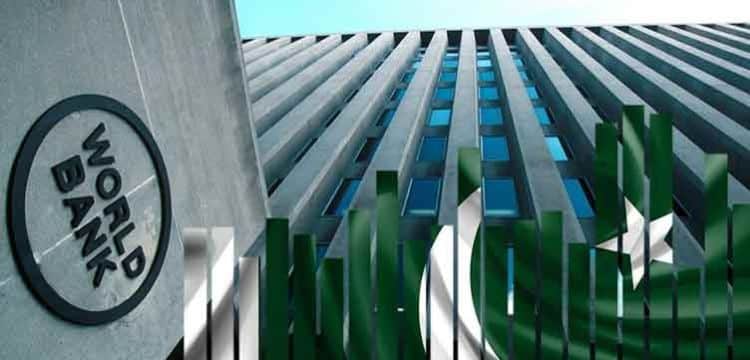[vc_row][vc_column][vc_column_text dp_text_size=”size-4″]
The World Bank has suggested that Pakistan should initiate taxation on monthly salaries below Rs50,000 and further lower the income threshold for imposing the highest income tax rate of 35% on salaried individuals, which currently stands at Rs500,000 per month.
If Pakistan were to accept this recommendation, it would place additional financial burdens on an already heavily taxed income group that pays taxes on their total earnings, without the ability to deduct expenses, in contrast to the flexibility enjoyed by the country’s wealthiest individuals.
These proposals are part of the World Bank’s efforts to restore fiscal sustainability, which include measures to broaden the tax base by including currently untaxed areas and rationalizing expenditures. The goal is to limit federal spending in line with provincial mandates to reduce federal expenditures and enhance accountability in service delivery. One significant recommendation is the revision of the 7th National Finance Commission Award to align financing with the responsibilities of provincial and federal governments.
Also Read: World Bank Expresses Concerns Over Pakistan’s Sales Tax System
According to the Pakistan Development Outlook report released by the World Bank, the current income tax exemption threshold for salaried individuals is set too high, excluding formally employed individuals from the tax net. Currently, monthly salaries of up to Rs50,000 are exempt from taxation, and the World Bank suggests lowering this threshold. However, this recommendation appears to be out of touch with the economic realities in Pakistan, where people are grappling with high inflation, projected at 26.5% for the fiscal year.
The report also highlights that the income tax threshold for the highest tax bracket for salaried individuals is excessively high and captures only a limited number of taxpayers. The government currently imposes a maximum 35% income tax rate on individuals earning over Rs500,000 per month. Earlier, under pressure from the International Monetary Fund (IMF), the government had reduced this threshold from Rs1 million per month in June of the previous year, a move now supported by the World Bank.
In the last fiscal year, the salaried class contributed Rs264 billion in taxes, compared to the Rs74 billion paid by Pakistan’s wealthiest exporters. These recommendations from the World Bank and the IMF could further disadvantage the country’s lower-income salaried class, potentially leading to social unrest.
Also Read: FBR Boosts Refunds to Rs. 37 Billion in September 2023, Combatting Tax Evasion
The World Bank has identified disparities in tax-free allowances, tax brackets, and tax rates between salaried individuals and other taxpayers, creating economic distortions and opportunities for tax avoidance through income manipulation. To address this, the World Bank proposes expanding the tax base by including individuals and individually owned businesses, such as retailers, in the tax system, reducing the tax-free threshold, and simplifying the structure of personal income tax. They also suggest merging tax schedules for salaried and non-salaried taxpayers to eliminate opportunities for tax arbitrage.
Regarding agriculture, the World Bank recommends reducing the tax-free threshold for agricultural land, currently set at 12.5 acres, to bring more agricultural land into the tax net. Farmers owning 12.5 to 25 acres currently pay only Rs100 per acre in tax.
Additionally, the World Bank suggests reforms to the sales tax law, eliminating concessions primarily utilized by wealthier individuals and businesses. They propose limiting zero-rating to exports and reducing exemptions to essential goods. According to the report, the current sales tax system, which offers concessionary rates and zero ratings for non-exported products, costs Pakistan 15% of its potential revenue based on 2019 data.
To streamline corporate income tax (CIT) rates, the World Bank recommends addressing the incentives for firms to remain small or split. Pakistan’s simplified turnover tax regime, which benefits certain firms financially, should also be rationalized to encourage investment in accounting systems, business formalization, and expansion.
To rationalize expenses, the World Bank suggests a review of Public Sector Development Program (PSDP) expenditures, canceling projects that lack proper preparation, selection, and prioritization, and postponing projects unlikely to benefit the poor.
The report further points out that Pakistan’s pension expenses are the highest in South Asia, and measures should be taken to control pension spending, such as indexing to inflation with a cap, establishing a minimum retirement age for benefits, and restricting eligible dependents for survivorship benefits.
Lastly, the World Bank emphasizes the need to revive institutions for fiscal coordination, including the Council for Common Interests, and to implement legal reforms that support a national fiscal policy.
[/vc_column_text][/vc_column][/vc_row]











